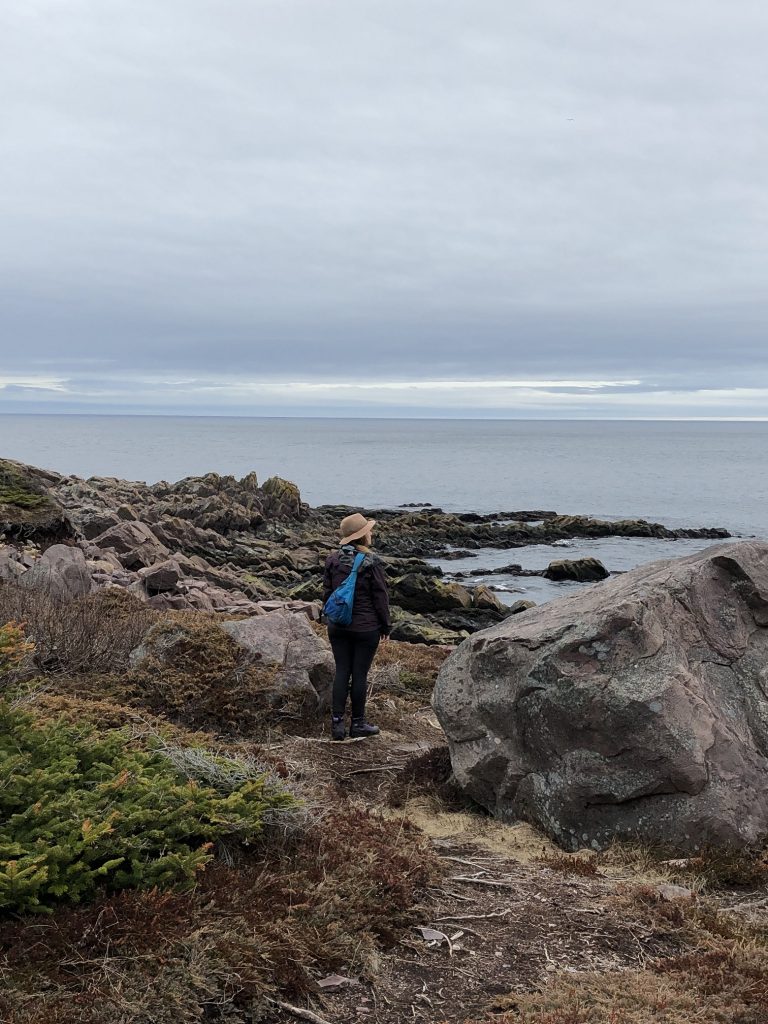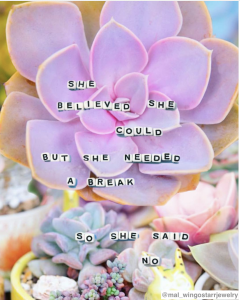Ah, spring! There is new life being breathed into everything around us. This time of year always makes me feel inexhaustible like the ever increasing daylight. We emerge from under our layers, our homes and our winter routines to embrace the boundless opportunities like we embrace the warmer days.
Here is the problem: I am exhaustible, and I am bounded by time. I entered this school year deciding that I should be open to all new opportunities, take chances, fully embrace the new and exciting, say “yes” to everything that comes my way, but what started as motivation became saturation. I got myself into a situation where I had taken on too much.
Over the past month I have tried to figure out how to strike a better #balance. I am not saying I have solved the work-life tension, but I have found a new tool for my arsenal: Saying No.
The decision
One of my favourite podcasts, Welcome to Nightvale, once said: “The present tense of regret is indecision”. The freedom to say “no” or “yes” presents me with a decision, and then enters the uncomfortable state of indecision and worrying about the regrets my future self will have. Here are some questions I ask myself when I am struggling with a decision:
- Will I benefit from participating? I am pretty good at finding the positives in participation, so recently I have had to become more critical about what constitutes a benefit. Mostly, I try to evaluate if each new opportunity is filling an experiential gap.
- Am I passionate about it? I have a strong sense of what I value and what I am interested in. It is my hope that the majority of what I do will align with these interests.
- Will it compromise my ability to complete necessary tasks? This non-exhaustive list includes taking care of myself. With all I have on the go, it takes a lot to become a priority!
- Will others benefit from my involvement? When I think about accepting the request I try to determine if my participating is bringing something unique or necessary. If not, I ask myself another two questions…
- Does saying no provide an opportunity for someone else to learn? Sometimes the person can complete the task on their own or I can think of another individual who can benefit from the experience. If I can think of someone else for the job, I become an advocate, especially if it’s an opportunity that person normally wouldn’t have access to.
- Am I saying no because of imposter syndrome or fear? If so, I know I definitely need to say “yes”!
The execution
How I deliver the “no” depends on the situation and the recipient. I try to express my gratitude for the opportunity, and a hint of regret for not being involved.
I recently backed out of some plans I made, saying “no” after agreeing to participate. This is sometimes worse than initially declining, but don’t be afraid to use it from time to time. Upon reflection, it might be necessary to protect yourself and your time especially if your situation changes.
To reduce the burden of “no” I am trying to be more open with people about my busy schedule. The fact is that I need to dedicate more time to myself and my thesis. This is not something I have to deal with alone: my colleagues and friends help evaluate if my involvement is necessary and valuable. They make it easier for me to say “no”.
The struggle
Saying “no” is hard. When I say “no” I fear I might have let people down and mourn the potential of what could have been.
Giving myself the option to say “no” required me to get honest with myself and others that I am not limitless. I wish I could do everything well and not require any rest. Admitting otherwise feels like admitting weakness, but it can be empowering to set those boundaries.
Now that I say “no”, I have had to reflect on the trade-off between being liked versus respected. Of course, I want to be liked. Over the years I have become more selective about who I care about liking me, but this is still a large group of people, and I cannot please all of them all the time while also caring for myself. Someone who does everything for everyone is very likable, but they haven’t demonstrated that their time and energy is to be respected.
I feel guilty, but that is ok. Feeling guilty doesn’t mean I made the wrong decision. It also doesn’t mean I have something to make up for when I prioritize my time.

Allowing myself to say no has made reflect on priorities and spend more time on things that are important to me – like being nature
The benefits
My practice of saying “no” is still early days, but since implementing it I have noticed a few things:
- Saying no makes me, and others, value my time and energy more. When my participation became a limited commodity, the demands for it became more selective and important.
- Drawing boundaries helped me reflect on and evaluate my priorities and passions.
- Inviting the option of “no” has made saying “yes” more intentional and meaningful.
- Opportunities feel less like burdens, and they are more plentiful then I thought before.
I hope that we all get to a place where we feel confident in knowing how to say “no”. If you make “no” a part of your routine, life will continue as it has before, and your future will continue to be filled with opportunities. In fact, leaving room for only the right opportunities will reassure you of that.
I think what spring demonstrates to us is that growth happens only after dormancy. Let’s try to carve out some pauses for ourselves in a world that is telling us to do otherwise.
This is a common struggle in our generation and in grad school. I’ve told you about my struggles. Here are two great articles written by two other grad students on how they became acquainted with the word “no”: https://www.insidehighered.com/blogs/gradhacker/saying-no and https://gradscrewups.com/2015/07/23/how-to-say-no/.
